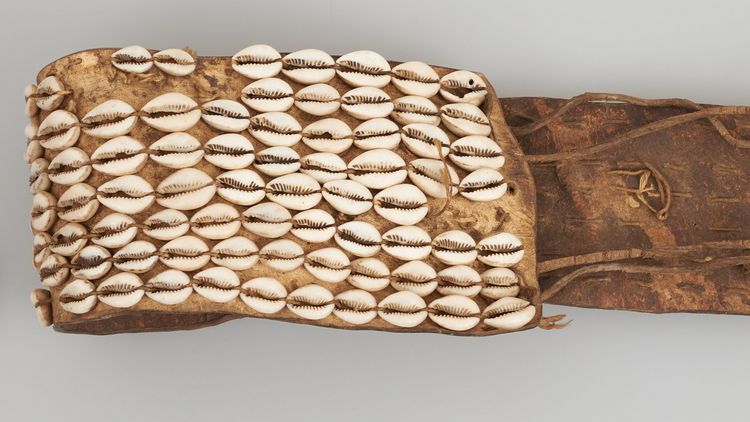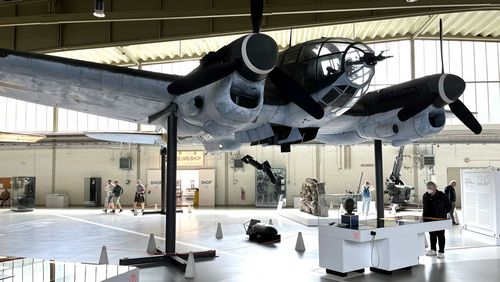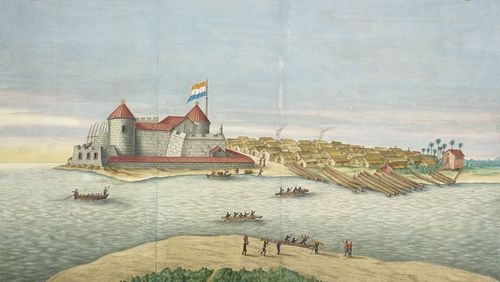The university has been selected to lead a collaborative project on provenance and collection research as part of the Wissenschaftsräume programme of the state of Lower Saxony and the Volkswagen Foundation, and is also involved in five other projects.
Germany’s museums contain hundreds of thousands of objects that came to Europe during the colonial era through wars, looting or trade. Yet the documented history of these objects – where they come from, what purpose they served and whom they once belonged to – is often incomplete. Now, an interdisciplinary research team led by historian Prof. Dr Dagmar Freist from the University of Oldenburg, provenance researcher Prof. Dr Lynn Rother (Leuphana University Lüneburg) and computer scientist Prof. Dr Sascha Koch (Jade University of Applied Sciences Wilhelmshaven/Oldenburg/Elsfleth) is stepping in to help bridge these gaps. The team behind the project Provenance and Collection Research Digital (Provenienz- und Sammlungsforschung Digital – ProSaDi) will focus on gathering this information for two types of collection items selected as case studies. Researchers from the countries where the objects originated will also collaborate with the project. The team will develop digital methods and tools for processing information about museum objects, making the data readily accessible to a wider audience. The Lower Saxony Ministry of Science and Culture (MWK) and the Volkswagen Foundation will provide nearly 3 million euros in funding for the project over a four-year period as part of their Wissenschaftsräume (Science Spaces) funding programme.
Commenting on the successful application, Prof. Dr Ralph Bruder, President of the University of Oldenburg, said: “Thanks to the Prize Papers Project of the German Academies’ Programme, the University of Oldenburg has acquired a great deal of expertise in dealing with objects from the colonial era and in the digitisation of historical evidence. In collaboration with numerous partner institutions, the project that has now been approved in the Wissenschaftsräume programme will help to make this knowledge more accessible to society.” The fact that the university is also involved in five other projects that are receiving funding through the programme underscored the successful interdisciplinary and inter-institutional cooperation which has always been a hallmark of the University of Oldenburg, he added.
Partner in five projects
The University of Oldenburg is also a partner in five other projects of the sixteen that have been chosen to receive funding in the Wissenschaftsräume programme: Prof. Dr Caterina Cocchi, Prof. Dr Christoph Lienau and Prof. Dr Christian Schneider from the Institute of Physics are involved in the Electron Light Control project, which is coordinated by the University of Göttingen. Prof. Dr Gudrun Massmann and Prof. Dr Thorsten Balke from the Institute of Biology and Environmental Sciences are participating in the project CoastAdapt – Knowledge and Innovation Ecosystem Coastal Engineering & Coastal Research led by the Technische Universität Braunschweig. In addition, the Leuphana University Lüneberg will lead three projects involving Oldenburg researchers: educational scientists Prof. Dr Karsten Speck and Prof. Till-Sebastian Idel from the Institute of Educational Sciences are taking part in the Future Trends in Education project, Oldenburg economist Prof. Dr Christian Busse is working on the Sustainability Governance of Global Value Chains project, and social scientist Prof. Dr Jan Sauermann is a partner in the Behavioural Economics and Social Transformation project.
The ProSaDi project has arisen in response to the ongoing debate regarding the handling of museum artefacts from colonial contexts. “The current state of knowledge and museum documentation on artefacts in collections from colonial contexts is – with a few exceptions – outdated in terms of both content and technology," Freist observes. Much of the information compiled by museums over the decades has not yet been digitised and often reflects racist and Eurocentric perspectives, she points out. “Provenance and collection research face the challenge of not only reconstructing information about the possession and ownership of objects but also developing a strategy to determine what a future culture of remembrance in museums could look like at the regional, national and global level," adds Rother. “This will require efficient research approaches and cooperation with the societies of origin.”
Using Digital Tools to Increase Access to Information
To achieve their goals, the project team will develop IT and AI-supported methods that can be used by museums and other institutions to digitally process and display information about their collections. The aim is to compile the data in a user-friendly infrastructure that allows for easy interconnection and retrieval of data. Together with international partners, the researchers will also examine the different forms of knowledge production used over time in German museums and in the societies of origin.
The team will design the new methods on the basis of two case studies. The first builds on data already gathered in the project Provenance Research in Non-European Collections and Ethnography in Lower Saxony (PAESE), a collaborative project funded by the Volkswagen Foundation from 2018 to 2022. This project brought together researchers from six museums and universities in Lower Saxony, who worked with researchers from Cameroon, Namibia, Tanzania and Papua New Guinea, in order to investigate collection objects and record their findings in the first publicly accessible cross-museum database.
The second case study focuses on a selection of cowrie shell collections in the state of Lower Saxony. The shells of cowrie molluscs have been used as currency, jewellery and bride prices in Africa, Asia and the South Seas since ancient times. They were also used by Europeans in the trade with enslaved people from the early modern period onwards, until they eventually became coveted collector's items. Today, they are most commonly found in museum collections but have never been properly researched.
AI-supported image analysis of sea snail shells
Building on these two groups of objects the project team will develop AI-supported methods for documenting and analysing the biographies, origins and other data about museum objects. This will aid researchers in reconstructing changes in possession and ownership and shine a light on historical contexts. There are also plans to develop an AI-based image analysis system for researching kauri shells which would enable automated categorisation of subspecies of kauri sea snails. “In ProSaDi we will also closely interlink research and teaching at the intersection of AI and cultural heritage, and develop new concepts for doing this,” says Koch. The project team has also enlisted the support of state museums, archives and the Provenance Research Network in Lower Saxony network in order to pursue practice-oriented questions. The aim is to ensure that the results of the ProSaDi project are incorporated into everyday practice for museum and archive collections and also applied in the education sector.
Alongside Freist, Rother and Koch, Julia Wurr, Junior Professor of Postcolonial Studies at the University of Oldenburg, is the fourth member of the project management team and Freist's deputy. Among the university’s partners in the project are the Leibniz University Hannover, the Provenance Research Network in Lower Saxony based at the Landesmuseum Hannover, the Landesmuseum Natur und Mensch in Oldenburg, the German Maritime Museum/Leibniz Institute for Maritime History in Bremerhaven, several other German partners and an international network of experts based in Africa, Australia and the USA. Researchers from a number of fields including history, cultural studies, media studies, engineering and geoinformation sciences will be working on the project.
The Wissenschaftsräume programme of the MWK and the Volkswagen Foundation aims to encourage universities and non-university institutions in Lower Saxony to engage in closer forms of collaboration and exchange.




